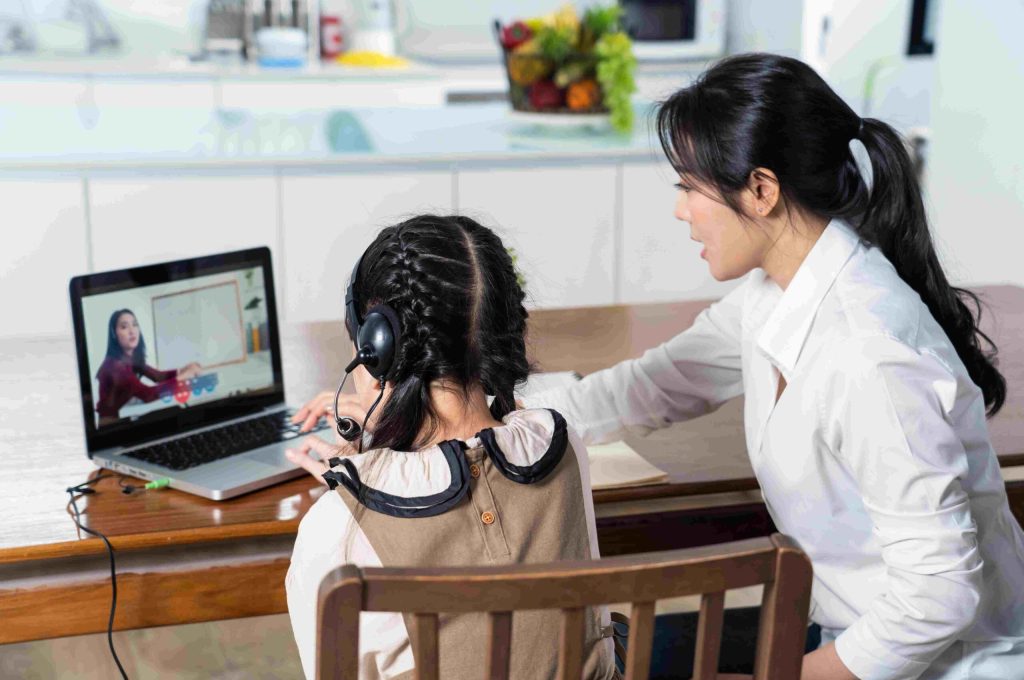At Deel Behavioral Health, we understand the unique challenges that parents face when it comes to supporting children and teenagers with Attention Deficit Hyperactivity Disorder (ADHD). ADHD is a neurodevelopmental disorder characterized by persistent patterns of inattention, hyperactivity, and impulsivity. It can significantly impact a child’s academic performance, relationships, and overall well-being. Recognizing the signs and understanding the treatment options are vital steps in ensuring your child’s success.
Attention Deficit Hyperactivity Disorder (ADHD) is a complex condition that affects the brain’s executive functions, making it challenging for children and teenagers to focus, plan, and control their impulses. It is important to note that ADHD is not simply a result of laziness or lack of discipline; it is a medical condition that requires proper diagnosis and treatment.
Understanding ADHD
What is ADHD?
ADHD is a neurodevelopmental disorder that affects millions of children and teenagers. It is characterized by a persistent pattern of inattention, hyperactivity, and impulsivity that interferes with daily functioning. Understanding the nature of ADHD is the first step in effectively managing it.
ADHD often persists into adulthood, but early diagnosis and intervention can significantly improve outcomes. It’s important to recognize that individuals with ADHD can be highly creative and intelligent; their challenges are related to specific executive functions in the brain.
Types of ADHD
- Inattentive Type: This type is characterized primarily by difficulties with sustained attention and organization. Children with inattentive-type ADHD may have trouble following instructions, completing tasks, and remembering things.
- Hyperactive-Impulsive Type: Children with this type are hyperactive and impulsive, often fidgeting, interrupting others, and acting without thinking. They may have difficulty waiting their turn and may be more prone to accidents.
- Combined Type: This is the most common form of ADHD, combining symptoms of both inattention and hyperactivity-impulsivity.
Recognizing ADHD Symptoms
Common ADHD Symptoms
- Inattention Symptoms: Children and teenagers with ADHD may display inattention symptoms such as difficulty organizing tasks, forgetfulness, losing important items, and struggling to complete assignments.
- Hyperactivity Symptoms: Hyperactivity in ADHD can manifest as constant restlessness, an inability to stay seated, and excessive talking.
- Impulsivity Symptoms: Impulsivity may lead to difficulties waiting one’s turn, blurting out answers, and making hasty decisions without considering the consequences.
Diagnosis
Diagnosing ADHD involves a thorough evaluation by a healthcare professional, typically a pediatrician, psychiatrist, or psychologist. The process includes gathering information about the child’s behavior, medical history, and school performance. The use of standardized assessment tools and criteria from the Diagnostic and Statistical Manual of Mental Disorders (DSM-5) is essential for an accurate diagnosis.
ADHD Treatment Options
Treating ADHD often involves a combination of approaches tailored to the child’s specific needs.
Medication
- Stimulant Medications: These are the most commonly prescribed medications for ADHD and are effective in managing symptoms. Examples include methylphenidate (Ritalin) and amphetamine (Adderall). They work by increasing the levels of certain neurotransmitters in the brain, improving focus and impulse control.
While stimulant medications are generally safe and well-tolerated, they may have potential side effects, including decreased appetite, insomnia, and weight loss. It’s essential to work closely with a healthcare provider to find the right medication and dosage for your child. - Non-Stimulant Medications: In cases where stimulant medications are not effective or cause undesirable side effects, non-stimulant options like atomoxetine (Strattera) may be considered. These medications have a different mechanism of action and can be a valuable alternative.
Behavioral Therapy
- Cognitive Behavioral Therapy (CBT): CBT is a structured, evidence-based approach that helps children and teenagers with ADHD develop strategies to improve executive functions, self-control, and emotional regulation. It can be particularly useful in addressing challenges like organization, time management, and problem-solving.
- Behavioral Parent Training: Parents play a crucial role in supporting their child’s treatment. Behavioral parent training programs teach parents effective techniques for managing their child’s behavior, setting clear expectations, and providing positive reinforcement.
Complementary and Alternative Treatments
While not a replacement for conventional treatments, some families explore complementary approaches such as:
- Dietary Modifications: Research suggests that certain dietary changes, such as reducing the consumption of artificial food additives and improving nutrition, may help manage ADHD symptoms in some individuals. However, dietary interventions should be discussed with a healthcare provider.
- Neurofeedback: This emerging therapy aims to improve self-regulation by training individuals to control their brainwave patterns. Neurofeedback is still being studied for its effectiveness in ADHD treatment.

There were over 109 thousand fatal overdoses due to drugs according to the CDC in 2022



Developing an ADHD Treatment Plan
Collaborating with Professionals
- Pediatricians: Pediatricians are often the first point of contact for ADHD diagnosis and treatment. They can provide guidance on medication management and monitor your child’s physical health.
- Psychologists: Psychologists offer therapy and counseling services, helping children and teenagers develop essential skills to manage ADHD symptoms.
- Educators: Effective communication with teachers and school staff is crucial. Collaboration with the school can lead to the development of Individualized Education Plans (IEPs) or 504 plans, which provide necessary accommodations and support in the educational setting.
Individualized Treatment Plans
Every child with ADHD is unique, and their treatment plan should reflect their specific strengths and challenges. Goals and milestones should be established to track progress effectively. Here are steps to creating an individualized treatment plan:
- Assessment: A thorough evaluation by a healthcare professional is essential to understand the child’s unique needs and challenges.
- Setting Goals: Define clear, achievable goals for treatment. These goals should be specific, measurable, and tailored to the child’s age and developmental stage.
- Treatment Options: Based on the assessment, select appropriate treatment options, which may include medication, therapy, or a combination of both.
- Monitoring Progress: Regularly assess your child’s progress towards their goals. Adjust the treatment plan as needed to ensure it remains effective.
Strategies for Parents
Supporting Your Child
Create a Supportive Environment: Children with ADHD thrive in an environment that provides structure, clear expectations, and consistent routines. Establish daily routines and set up a designated study area with minimal distractions.
Educate Yourself: Knowledge is a powerful tool in managing ADHD. Learn about the condition, its challenges, and available treatments to better understand your child’s experiences.
Managing Daily Challenges
Schoolwork and Organization: Work closely with teachers to develop strategies for success at school. Consider tools like assignment notebooks, digital calendars, and visual schedules to help your child stay organized.
Balancing Structure and Flexibility: While structure is essential for children with ADHD, it’s also important to allow them some flexibility to explore their interests and passions. Encourage hobbies and extracurricular activities that align with their strengths.
Navigating School and Education
Working with Schools
- Collaboration with Teachers: Maintain open lines of communication with your child’s teachers. Share the ADHD diagnosis and discuss any specific challenges your child may face in the classroom.
- IEPs and 504 Plans: If your child requires additional support, consider pursuing an Individualized Education Plan (IEP) or a Section 504 Plan. These plans can provide accommodations, such as extended time on assignments or reduced distractions during testing.
Educational Resources
- Supportive Resources: Schools often have resources to support students with ADHD, including special education services, tutoring, and counseling. Explore these options to ensure your child receives the help they need.
Monitoring Progress
Tracking ADHD Symptoms
- Use Tools: Healthcare professionals may provide tools and questionnaires to help track your child’s progress. These tools can be valuable in assessing the effectiveness of treatment over time.
Potential Challenges and Solutions
Addressing Stigma
- Combatting Stigma: Unfortunately, there is still stigma associated with ADHD. It’s essential to educate others about the condition and advocate for your child when necessary.
- Seeking Support: As a parent, managing the challenges of ADHD can be emotionally taxing. Don’t hesitate to seek support for yourself, whether through support groups or individual counseling. Taking care of your own well-being is crucial in supporting your child effectively.
Conclusion
In conclusion, ADHD is a manageable condition, and early intervention and effective treatment can make a significant difference in a child’s life. By working with professionals, implementing strategies, and providing support, parents can help their children with ADHD thrive and reach their full potential.
FAQ
Is ADHD a real medical condition?
Yes, ADHD is a recognized neurodevelopmental disorder with clear diagnostic criteria. It is not a result of laziness or lack of discipline but a medical condition that affects the brain’s executive functions.
What are the treatment options for ADHD?
Treatment options for ADHD include medication (stimulant and non-stimulant), behavioral therapy (such as CBT), and complementary approaches (like dietary modifications). Treatment plans are typically individualized to meet each child’s specific needs.
Are there side effects of ADHD medications?
Stimulant medications, while generally safe and effective, can have side effects like decreased appetite, insomnia, and weight loss. Non-stimulant medications may have different side effects. Close monitoring by a healthcare provider is essential.
How can I support my child's education with ADHD?
Collaborate with teachers and school staff to develop an Individualized Education Plan (IEP) or a 504 Plan, which can provide accommodations and support tailored to your child’s needs.
Can ADHD be outgrown?
ADHD often persists into adulthood, but its symptoms can change over time. Early intervention and effective treatment can help individuals learn to manage their symptoms and succeed in various aspects of life.
How can I find support for myself as a parent of a child with ADHD?
Consider joining support groups for parents of children with ADHD or seeking individual counseling. Taking care of your own well-being is crucial in supporting your child effectively.
We hope this guide has provided you with valuable insights into ADHD treatment for children and teenagers. If you have any specific questions or concerns, do not hesitate to reach out to Deel Behavioral Health for expert guidance and support.







